What is Rotary?
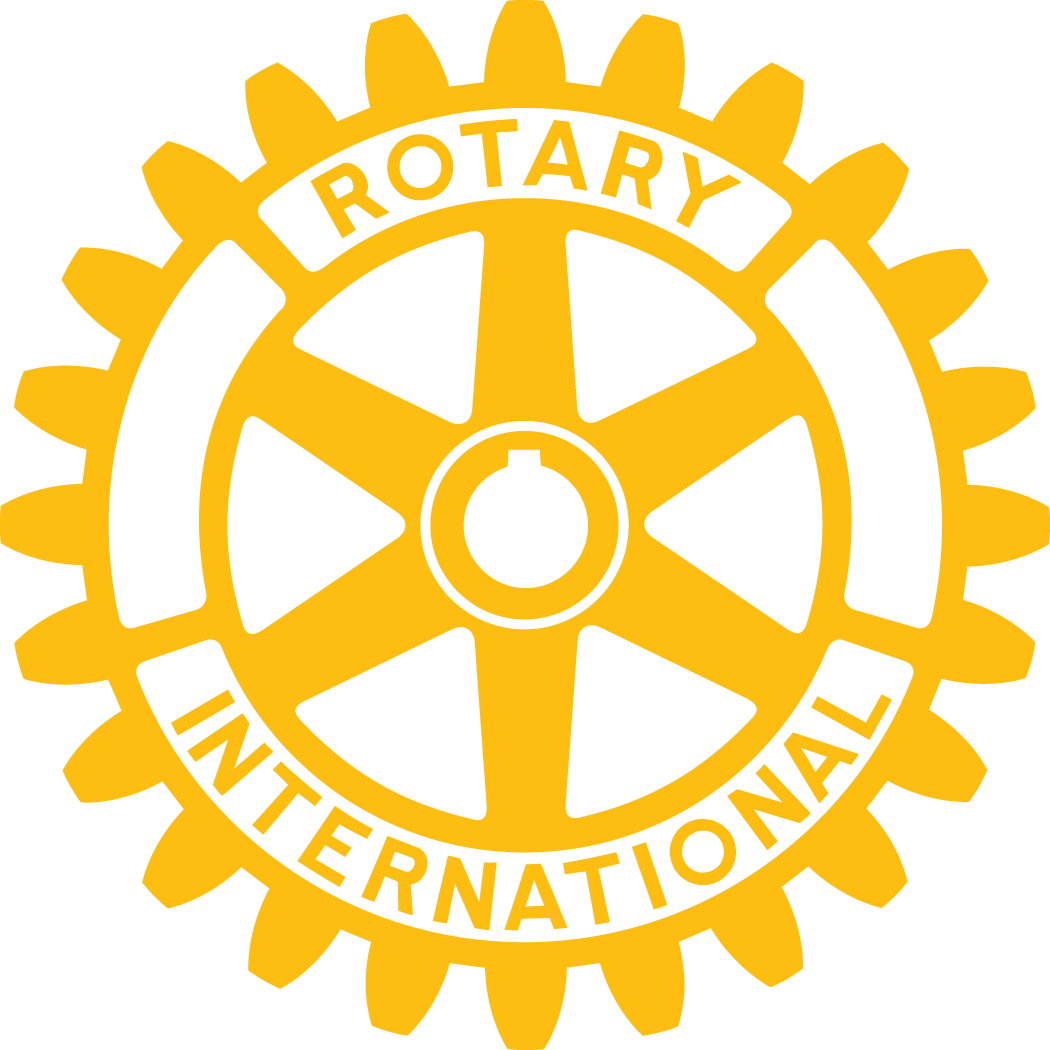 Rotary International is the world's first service club organisation currently comprising more than 1.2 million male and female business, professional, and community leaders who, as members of Rotary clubs, are known as Rotarians.
Rotary International is the world's first service club organisation currently comprising more than 1.2 million male and female business, professional, and community leaders who, as members of Rotary clubs, are known as Rotarians.
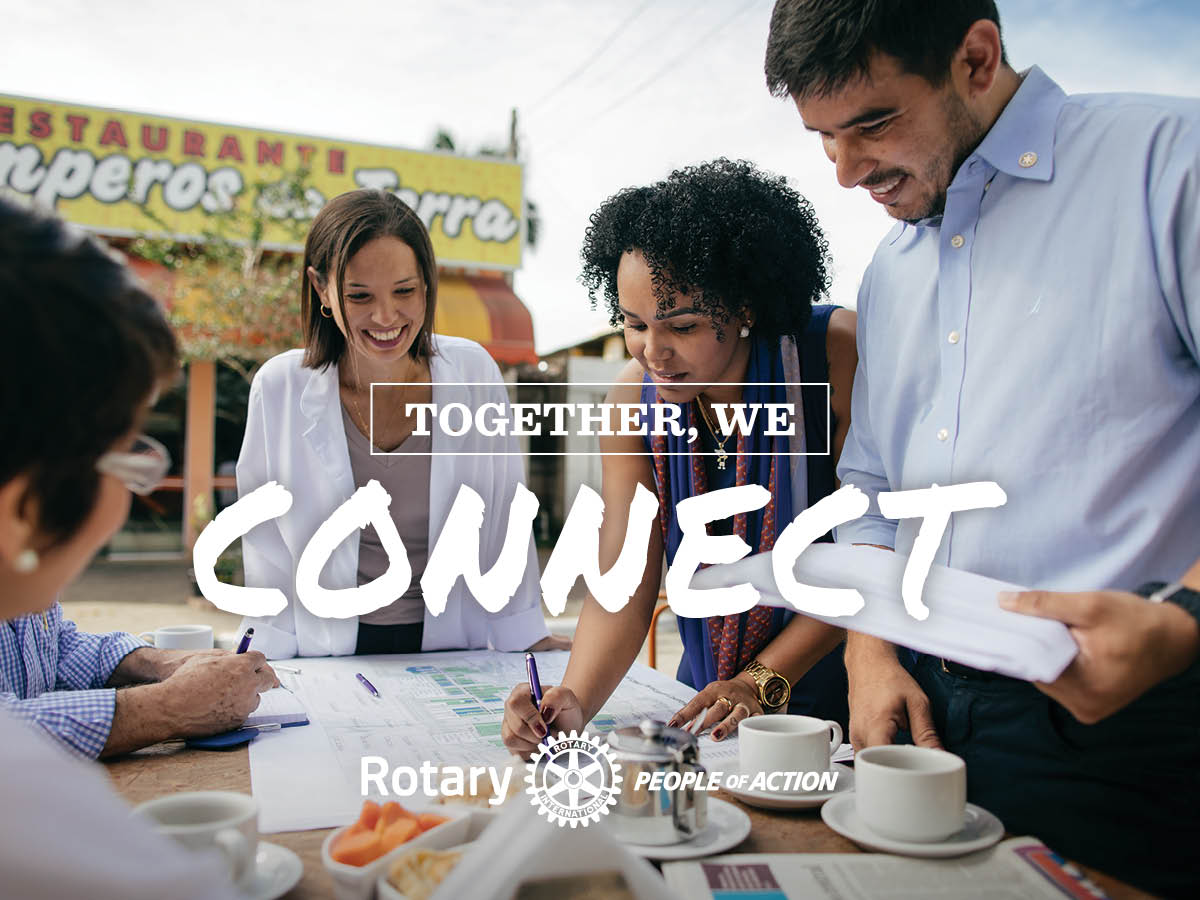 Rotarians volunteer their time, talents, professional skills and energy to improving the lives of people in their local community and around the world fulfilling the Rotary Motto - Service Above Self.
Rotarians volunteer their time, talents, professional skills and energy to improving the lives of people in their local community and around the world fulfilling the Rotary Motto - Service Above Self.
Rotary is organised at club, district, and international levels. Clubs are grouped into 530 Rotary districts, each led by a District Governor and the districts form Rotary International though Rotary is essentially a grassroots organisation, with most of its service efforts being carried out at the club level – the cornerstone of Rotary. A District and International structure supports clubs and help clubs provide more service in their local communities and abroad.
There are over 34,000 Rotary clubs in more than 200 countries and geographical areas. Each club elects its own officers and enjoys considerable autonomy within the framework of the standard constitution and the constitution and by-laws of Rotary International. Clubs are non-political, non-religious and open to all cultures, races and creeds. Clubs usually meet weekly for breakfast, lunch or dinner in a friendly, social atmosphere and meetings often include a talk on a subject of general interest by an outside speaker.
The Rotary Club of Belfast is part of District 1160 and is affiliated to Rotary International in Great Britain and Ireland which represents over 50,000 members in over 1,800 clubs split between in 29 Districts. More details on RIBI can be found here.
The History of Rotary
 On February 23 in 1905, Chicago lawyer Paul P Harris called three friends to a meeting, his vision being to form a club that would encourage fellowship amongst members of the business community, an idea originating from his desire to find the kind of friendly spirit he had known in the villages where he had grown up. Word of the small Club soon spread and other businessmen were invited to join and the name "Rotary" was derived from the early practice of rotating meetings amongst members' offices.
On February 23 in 1905, Chicago lawyer Paul P Harris called three friends to a meeting, his vision being to form a club that would encourage fellowship amongst members of the business community, an idea originating from his desire to find the kind of friendly spirit he had known in the villages where he had grown up. Word of the small Club soon spread and other businessmen were invited to join and the name "Rotary" was derived from the early practice of rotating meetings amongst members' offices.
Soon after the Club name was agreed, one of the new members suggested a wagon wheel design for the Club emblem. It was the precursor of the familiar cogwheel emblem now used by Rotary and worn by Rotarians around the world. By the end of 1905, the Club had 30 members.
The second Rotary Club was formed in 1908 half a continent away from Chicago in San Francisco, California. The third Club was formed in Oakland, California; others followed in Seattle, Washington, Los Angeles and New York City. Rotary became international in 1910 when a Club was formed in Winnipeg, Canada and in 1911 Clubs were formed in Dublin, Belfast, London and Manchester. By 1921 the organisation was represented on every continent, and in 1922 the name Rotary International was adopted. As Rotary grew, its focus shifted to community service and civic obligations.
Early projects included building public toilets near Chicago's City Hall and delivering food to needy families now efforts are focused in six areas: promoting peace, preventing diseases,  providing access to clean water and sanitation, enhancing maternal and child health, improving basic education and literacy, and helping communities develop.
providing access to clean water and sanitation, enhancing maternal and child health, improving basic education and literacy, and helping communities develop.
Rotary International in Great Britain and Ireland (RIBI) was formed in 1914.
Club founding member Charles E White was given by Paul Harris, on the 05January 1928, a copy of Paul's life story, peculiarly written in the third person, and personally inscribed for Charles. The book is now held by the Club in its archive and an extract "The Conception of Rotary" with annotations made by Charles White is shown right (click to enlarge).
What does membership of Rotary mean?
Rotarians make a difference every day as Rotary's main objective is Service - in the community, in the workplace, and throughout the world.
Membership of Rotary provides individuals with the means to help those in need. There are countless opportunities to make a difference to those less fortunate than ourselves whilst providing friendship, both locally and worldwide, fun and entertainment and personal and business growth and development. By combining their skills and resources, members of Rotary are able to make a real contribution to the lives of others fulfilling the Rotary Motto Service above Self.
Service projects are determined by local needs and address many of today's most critical issues-violence, drug and alcohol abuse, health, hunger, illiteracy and the environment. But because Rotary is worldwide, we are in the unique position of being able to reach people in need all over the world from running life-changing projects in developing countries, eradicating Polio and making an immediate response to disaster-hit regions.
It is said that every minute of every day Rotary will touch the lives of millions somewhere in the world.
Each member of a Rotary Club makes a difference; together, Rotarians make change.
Who are Rotarians?... Rotarians are people like YOU
They are active, enthusiastic and fun-loving men and women of all ages, businesspeople, professionals or community leaders who all share a common interest in friendship and helping others.
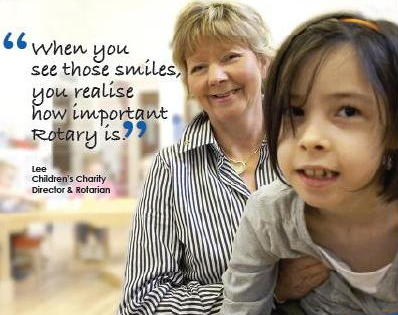 |
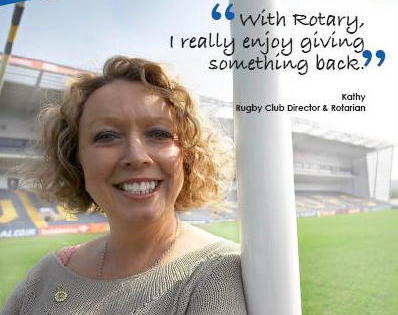 |
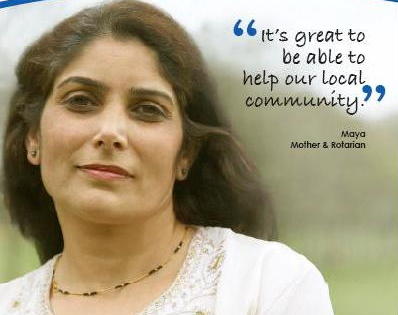 |
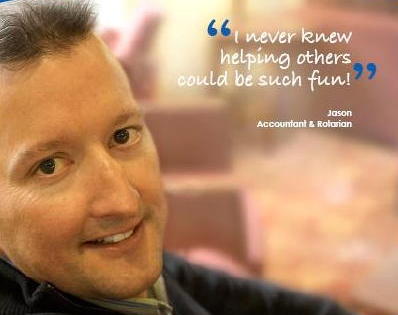 |
What do Rotarians get out of it?
Ask Rotarians what they get out of Rotary, and each will give a different answer. Some enjoy the social aspect; others appreciate business networking opportunities, enriching professional and personal knowledge and volunteering time and talents. However all love the chance to give something back to the community. What Rotarians get out of Rotary depends largely on what they put into it but one thing remains constant, every Rotarian has fun.
Avenues of Service
The object of Rotary is to encourage and foster the ideal of service as a basis of worthy enterprise and, in particular, to encourage and foster:
- The development of acquaintance as an opportunity for service;
- High ethical standards in business and professions; the recognition of the worthiness of all useful occupations; and the dignifying of each Rotarian's occupation as an opportunity to serve society;
- The application of the ideal of service in each Rotarian's personal, business, and community life;
- The advancement of international understanding, goodwill, and peace through a world fellowship of business and professional persons united in the ideal of service.
Rotary's commitment to Service Above Self has been channelled through the Avenues of Service, which form the foundation of club activity.
Club Service: focuses on strengthening fellowship and ensuring the effective functioning of Rotary Clubs.
Vocational Service: involves club members serving others through their professions practicing high ethical standards.
Community Service: covers the projects and activities the club undertakes to improve life in its community.
International Service: encompasses actions taken to expand Rotary's humanitarian reach around the world and to promote world understanding and peace. It includes everything from contributing to PolioPlus to helping Rotary Youth Exchange students adjust to their host countries.
Youth Service: recognizes the positive change implemented by youth and young adults through leadership development activities, service projects and exchange programs.
The Four-Way Test
Rotarians seek to apply the "Four-Way Test" to their thoughts, communications and deeds. Translated into more than 100 languages and published in thousands of ways it is one of the most widely printed and quoted statements of business ethics in the world. It asks the following questions of the things we think, say or do:
Is it the TRUTH?
Is it FAIR to all concerned?
Will it build GOODWILL and BETTER FRIENDSHIPS?
Will it be BENEFICIAL to all concerned?
The test was developed by Rotarian and entrepreneur Herbert J. Taylor in 1932 when he was asked to take charge of a company that was facing bankruptcy. Taylor looked for a way to save the struggling company mired in depression-caused financial difficulties. He drew up a 24-word code of ethics for all employees to follow in their business and professional lives. The Four-Way Test became the guide for sales, production, advertising and all relations with dealers and customers, and the survival of the company is credited to this simple philosophy. Herb Taylor became president of Rotary International in 1954-55. The Four-Way Test was adopted by Rotary in 1943 and it is still seen as a standard for ethics in business management.
"Rotary Ethics" was the topic for Guest Speaker ADG Maurice Brooks at Monday's Meeting 4th July. The presentation was well received and thought provoking and can be read here.
The Rotary Foundation
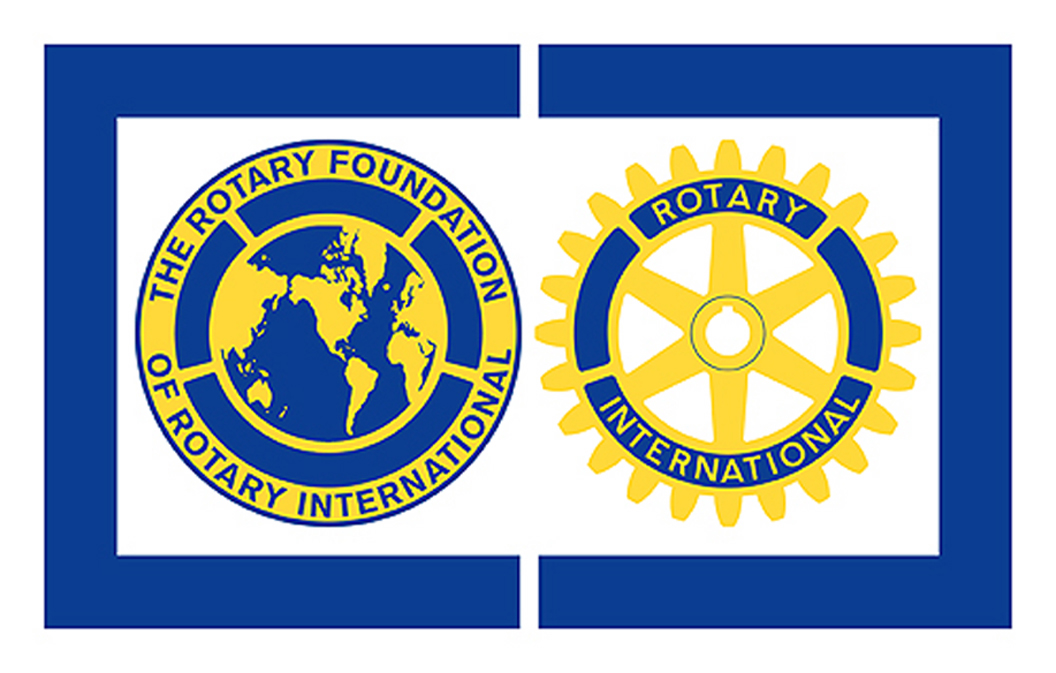
The Rotary Family
Though closely associated with Rotary, these clubs are independent and self-governing. There are two organisations specifically for young people, dedicated to service and international understanding, one organisation for the female relatives of Rotarians and one for retired and semi-retired men and women.
Rotaract which is made up from the words Rotary and Action, has a membership of over 150,000 in 146 countries. It is a club for men and women aged 19-30 years who participate in a programme of social, charitable and fund-raising events enabling them to meet people, try new activities, and make a difference in their local community.
Interact is a similar type of organisation but is for young people between the ages of 14 and 18; it has a membership of 170,000 in 106 countries. The sister organisation
Inner Wheel was formed in 1924 and is most probably the largest women's Voluntary Service Organisation in the world. Holding Non-Governmental Organisation (NGO) status with the United Nations it has representatives in its three centres of Geneva, New York and Vienna. Members are female relatives of Rotarians. Currently there are more than 100,000 members in over 101 countries and geographical locations who enjoy working together, making new friends and having fun while helping the vulnerable, young people and the elderly - both at home and in the developing countries. Help is given in many ways from general long term support to providing goods, funds and practical 'hands on' help in emergencies and disaster areas.
Probus is the Association of Retired and semi-retired men and women who join together in autonomous clubs throughout Great Britain, Ireland, and the rest of the world. The word Probus is an abbreviation of the words Professional and Business and translates from the Latin "probity" to honesty and integrity. Membership, however, is not restricted to these two groups embracing any person who has had some measure of responsibility in any field of endeavour.
Information on the Clubs affiliated to The Rotary Club of Belfast can be seen here.
Further information can also be found at Rotary International, Rotary International in Britain and Ireland, and Rotary District 1160.
To enquire about joining us contact us below.
